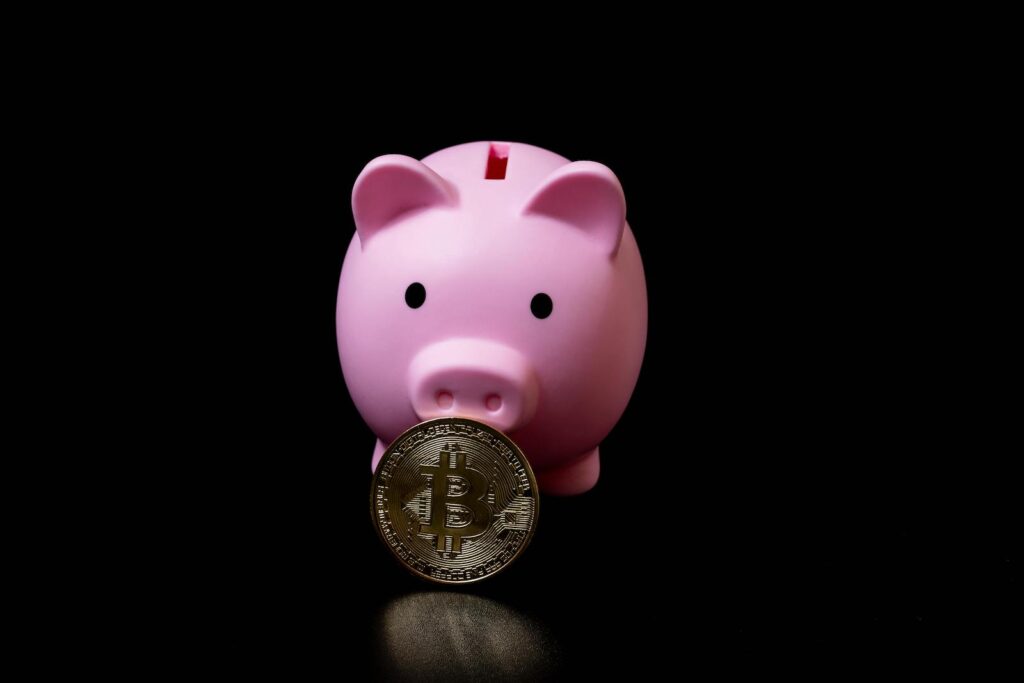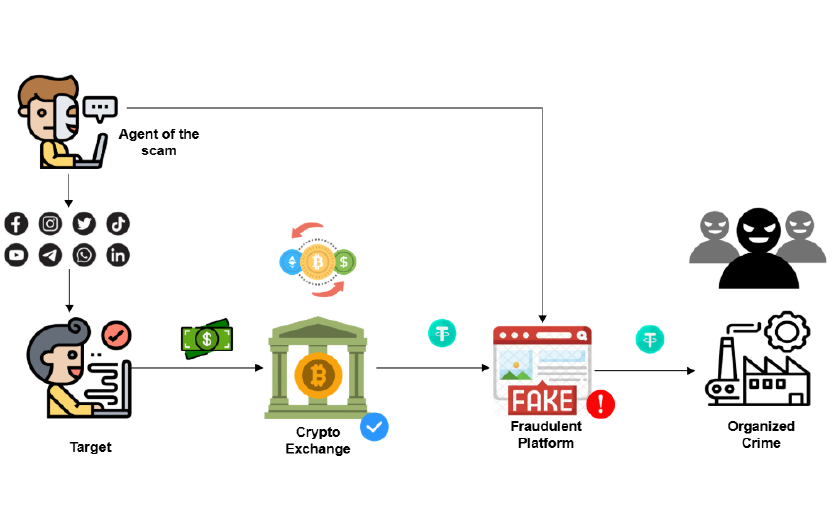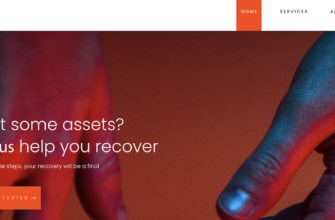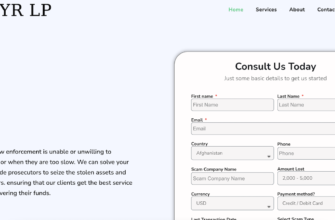In the vast and interconnected digital world, opportunities seem to appear at every turn. From online dating to networking platforms, we’re constantly meeting new people and forming connections. But lurking beneath this veneer of digital camaraderie is a sinister and increasingly prevalent threat: the pig butchering scam. We have spent considerable time ana/lyzing this sophisticated form of online fraud, and what we’ve discovered is a meticulously crafted deception that preys on our most fundamental desires for connection and financial security. Unlike a quick-and-dirty phishing attempt, a pig butchering scam is a long-form con, an intricate game of psychological manipulation where the victim is slowly “fattened up” before being “slaughtered” for their assets.
The term itself, a translation from the Chinese shā zhū pán, is a gruesome but apt metaphor. The scammers, or “butchers,” patiently build a relationship with their “pig,” the victim, for weeks or even months. This initial phase is crucial, as it involves the painstaking creation of a believable persona. The scammer might pose as a successful entrepreneur, a charming and wealthy investor, or a compassionate friend. They engage in seemingly innocent conversations, expressing genuine interest in the victim’s life, hobbies, and dreams. This emotional investment is the foundation of the con, and it’s what makes a pig butchering scam so devastatingly effective.
Our analysis of numerous cases reveals a clear progression. It almost always begins with an unsolicited message—a wrong number text, a connection request on a professional networking site, or a match on a dating app. The scammer’s approach is designed to be disarmingly casual, initiating a conversation that feels natural and unforced. Over time, the conversations deepen, often moving to encrypted messaging apps like WhatsApp or Telegram. The scammer shares curated photos of a luxurious lifestyle—fancy cars, lavish vacations, gourmet meals—to reinforce their fabricated success. This social proof is a powerful tool, subtly conditioning the victim to trust the scammer’s judgment and believe in their financial prowess.

How a Pig Butchering Scam Seduces and Betrays
The turning point in a pig butchering scam is the pivot from personal relationship to financial opportunity. Once the scammer feels they have gained the victim’s complete trust, they will introduce the topic of investment. They’ll speak of a “secret” or “exclusive” crypto trading platform, a low-risk, high-return venture that has made them incredibly wealthy. They present this opportunity not as a sales pitch, but as a generous gesture from a friend who wants to help you achieve your financial goals. They might even show you a doctored screenshot of their own “profits,” further solidifying the illusion of success.
This is where the deception becomes particularly insidious. The scammer doesn’t ask for a large sum of money upfront. Instead, they guide the victim through a series of small, seemingly successful investments on a fake trading platform they control. The victim is able to deposit a small amount of cryptocurrency, see their balance “grow” dramatically, and even make a small, successful withdrawal. This initial success is a carefully engineered part of the pig butchering scam. It creates a positive feedback loop, convincing the victim that the platform is legitimate and their new “friend” is a financial genius. This is the “fattening” stage, where the victim’s greed and trust are cultivated to their maximum potential.
The scammer will then encourage the victim to invest larger and larger sums of money to unlock bigger profits. They might pressure the victim to sell their assets, take out loans, or empty their savings. The promises become grander, the returns more astronomical. The victim, now fully invested both emotionally and financially, often succumbs to this pressure. They believe they are on the cusp of a life-changing windfall. This cycle continues until the victim either runs out of funds or becomes suspicious.
Unmasking the Deception: When the Pig Butchering Scam Comes to a Head
The ultimate goal of a pig butchering scam is to extract as much money as possible. The end game is often triggered when the victim attempts to withdraw a large sum of money. At this point, the illusion shatters. The scammer, or a “support agent” from the fake platform, will suddenly inform the victim that they cannot withdraw their funds without paying exorbitant “taxes,” “fees,” or “commissions.” These fabricated costs are designed to squeeze the last drops of money from the victim.
When the victim refuses or is unable to pay these fees, the scammer vanishes. The fake trading platform goes offline, the “friend” blocks them on all messaging apps, and the victim is left with nothing. The emotional and financial toll is immense. Victims not only lose their life savings but also grapple with a profound sense of betrayal. The realization that the person they trusted and confided in was a fraud, and the entire relationship was a lie, is often more painful than the financial loss itself.
We have found that the sophisticated nature of the pig butchering scam makes it difficult to recover funds. The use of cryptocurrency and fraudulent, often short-lived, web addresses makes tracing the money nearly impossible. Law enforcement agencies around the world are struggling to keep up with the scale and global reach of these organized criminal networks. The scam’s anonymity and the victims’ own embarrassment often lead to underreporting, allowing the networks to continue their operations with relative impunity.

Safeguarding Yourself from a Pig Butchering Scam
Awareness is our most potent weapon against a pig butchering scam. Based on our extensive research and case studies, we have compiled a set of clear guidelines to help individuals protect themselves.
1. Be skeptical of unsolicited contact. A casual text from a wrong number or an unexpected connection request might seem harmless, but it’s a common entry point for a pig butchering scam. A simple refusal to engage is often the best defense.
2. Question high returns. If an investment opportunity promises guaranteed, astronomical returns with little to no risk, it is almost certainly a scam. Legitimate investments carry risk, and anyone promising otherwise is likely trying to deceive you.
3. Never trust a stranger with your finances. A legitimate financial advisor will be transparent, licensed, and will never use an obscure or unverified platform for transactions. A pig butchering scam relies on getting you to use a platform they control, so they can manipulate the numbers and control your money.
4. Check for red flags. Does their story seem a little too perfect? Are they always talking about their wealth and success? Do they resist video calls or in-person meetings? These are all classic signs of a pig butchering scam.
5. Do your research. Before investing in any platform, do an independent verification. Check for reviews, regulatory information, and a history of the company. A simple online search can often reveal red flags or warnings from other victims. A pig butchering scam often uses a brand-new, unverified website designed to mimic a legitimate one.
In conclusion, the pig butchering scam is not just an investment fraud; it’s a deeply personal form of exploitation. It preys on our desire for connection, trust, and financial stability. By understanding its mechanics and recognizing the warning signs, we can empower ourselves to avoid becoming the next victim in this devastating digital con. Our work is a constant effort to shed light on these dark corners of the internet, and we hope this analysis will serve as a valuable resource for anyone navigating the complexities of the online world. Stay vigilant, stay informed, and trust your instincts.







